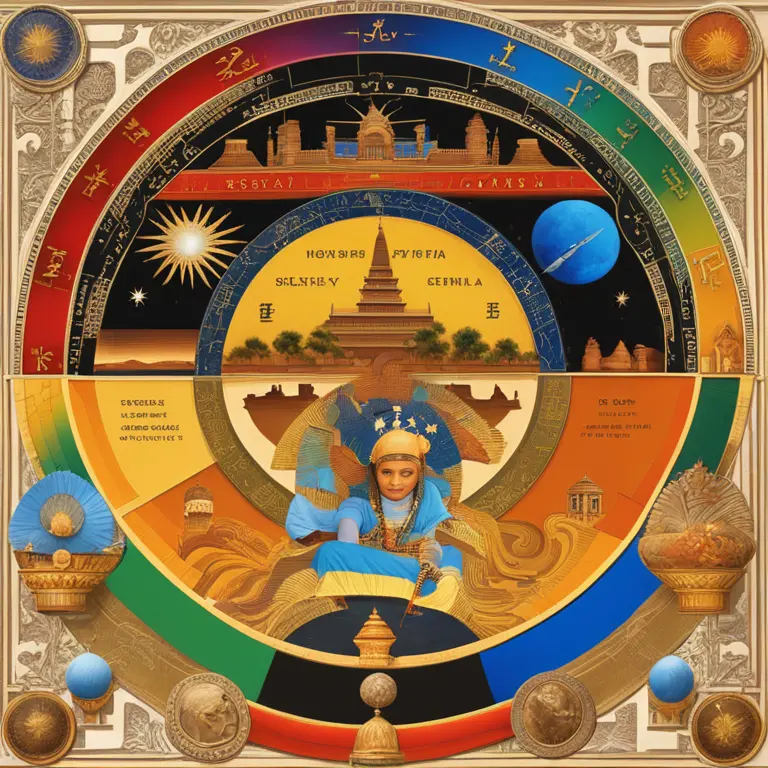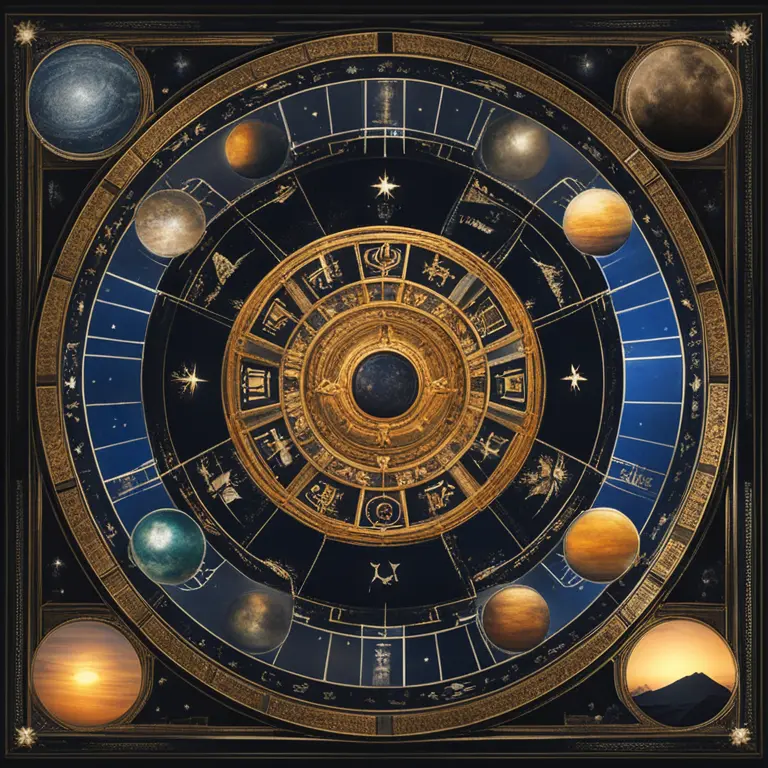
The Efficacy of Astrology: Myth or Reality?
Delve into the realm of astrology to understand its influence and whether it holds a true place in the modern era of evidence-based practice.
article by Priya Deshmukh
Introduction to Astrology's Position Today
Is astrology a legitimate tool for personal insight and life guidance, or merely an ancient superstition without place in our scientific era? This question has persisted for centuries. Astrology, broadly defined as the study of the positions and movements of celestial bodies in the belief that they have an influence on human affairs and natural phenomena, has evolved significantly since its inception. The dawn of the digital age has further enabled its resurgence, with online horoscope and birth chart readings becoming cutting-edge trend. In the quest for self-understanding and foresight, many turn to astrology, but skeptics demand empirical viability. How does astrology stand up to the scrutiny of our modern understanding of the universe?

The Mechanisms Behind Astrological Belief
To determine astrology's efficacy, one must comprehend its mechanisms. The movement of the planets, the sun, and the moon are said to influence individuals based on their birth charts—an astral snapshot at the time of one's birth. This zodiac montage is thought to determine personality traits, affinities, and life's potential paths. Despite its popularity, the scientific community largely deems astrology as a pseudoscience, due to a lack of empirical evidence supporting its predictive power. However, astrology enthusiasts rebut by revealing a more personalized, psychological, and spiritual interpretation that transcends scientific boundaries.

Psychological Effects and Self-Reflection
Astrology’s popularity thrives on its psychological appeal. People often find comfort in horoscopes that provide hopeful foresights or resonate with introspective narratives. This is rooted in the psychological experience known as the Forer effect, where individuals find vague, general statements highly applicable to themselves. Nonetheless, the process of reading an astrology chart can elicit deep self-reflection and awareness, which some might argue is a useful outcome regardless of the scientific legitimacy of astrology's effectiveness.

Cultural and Historical Relevance
Astrology has a rich cultural and historical significance that adds to its value as a symbolic language rather than a science. Ancient civilizations across the globe, from the Mayans to the Chinese, have relied on astrological principles to make sense of their world. This historical context imbues astrology with a kind of cultural wisdom that many still find relevant. Even today, technological advancements have transformed astrology into an accessible and appealing form of entertainment and guidance, which reinforces its role in modern culture.

Emerging Trends in Astrological Practice
Despite criticism, the field of astrology is evolving with technological innovations that have enhanced its accessibility and popularity. Astrological apps and AI-driven horoscope analyses offer tailored experiences to avid followers. Social media has catapulted astrological memes and zodiac-based content to viral status. These trends, symbiotic with the rise of personalized consumerism, demonstrate a generational shift towards more customized forms of spirituality and self-discovery.
Considering Astrology in the Age of Science
While it may not conform to the rigorous protocols of scientific inquiry, astrology occupies a unique niche where mysticism meets modernity. Some argue that by fostering a sense of community and individual peace, astrology serves a purpose beyond empirical evidence. With growing interest in holistic and alternative approaches to well-being, astrology's focus on personal harmony and cosmic connectivity strikes a chord with those seeking to complement the often sterile atmosphere of data-driven living.
Concluding Thoughts on Astrology's Validity
So, does astrology truly work? While scientifically it falters, culturally and psychologically, it triumphs for many. It is this duality that keeps the practice alive in the hearts of its adherents. For believers, astrology provides a framework for self-discovery and connectivity with the universe. For skeptics, it remains a quizzical relic of bygone eras. Ultimately, the answer to astrology's efficacy may lie in the individual's search for meaning and whether they find that within the stars.
Published: 2/13/2024
Modified: 2/13/2024
More predictions
Come back here soon to learn more about yourself and your future


The Tarot Queen of Pentacles: A Rich Symbolism
Delve into the symbolism and meanings of the Tarot Queen of Pentacles to enhance your readings and personal insights.


The Fusion of Tarot and Horoscope Insights
Discover how tarot horoscope provides personalized guidance by blending the wisdom of the stars with the intuition of tarot.


Crafting Inquiry: Top Tarot Questions to Ask
Discover the right questions to pose during a tarot reading to gain profound insights into your life's direction and decisions.